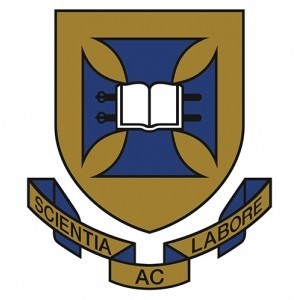Photos of university / #uniofqld
The Bachelor of Biotechnology at The University of Queensland offers students a comprehensive education in the rapidly evolving field of biotechnology, combining core scientific principles with innovative techniques to solve real-world problems. This program is designed to equip students with the knowledge and practical skills necessary to contribute to advancements in health, agriculture, environmental sustainability, and industrial processes. Throughout the course, students will engage in a blend of theoretical coursework and hands-on laboratory experiences, fostering both critical thinking and technical proficiency. The curriculum covers fundamental areas such as molecular biology, genetics, microbiology, biochemistry, and bioinformatics, alongside specialized topics like bioprocess engineering, drug development, and environmental biotechnology. Students have access to state-of-the-art laboratories and research facilities, enabling them to gain invaluable practical experience. The program also emphasizes the development of teamwork, communication, and problem-solving skills, preparing graduates to excel in diverse sectors including research institutions, biotech startups, pharmaceutical companies, and agricultural industries. Interdisciplinary collaborations are encouraged, with opportunities for industry placements and internships that provide real-world exposure and networking opportunities. By the end of the program, graduates will be capable of designing and implementing biotechnological solutions, conducting independent research, and applying their knowledge to innovate and improve various biological systems. Whether pursuing careers in research, product development, or policy, students will be well-positioned to contribute to the advancement of biotechnology and address pressing global challenges through scientific and technological innovation.
Students in the Doctor of Biotechnology are expected to research, develop and write a thesis that makes a significant contribution to the field. They also have to undertake advanced coursework and an industry placement.
The courses offered in the Doctor of Biotechnology are set out in the course list.
- Research Process
- Preparation for Professional Doctoral Research
- Business Planning in Biotechnology
- Finance
- Principles of Entrepreneurship
- Professional Practice in Biotechnology
- Biotechnology Thesis
Prerequisites
Bachelor of Science or Bachelor of Biotechnology with Class I or IIA honours from UQ OR equivalent OR coursework masters with approved results in the research component and a Grade Point Average of 5.5 on a 7 point scale OR at least 2 years relevant professional experience and/or research publications. All potential candidates are interviewed as part of the selection process.
English Proficiency
IELTS overall 6.5; reading 6; writing 6; speaking 6; listening 6.
International students are eligible to apply for a number of scholarships and prizes. These may be offered by the University, the Australian Government, foreign governments, or private organisations.
The UQ Graduate School support almost 1800 research students from an annual scholarship budget of almost $40 million in Australian Government and University funding. The Graduate School coordinates a competitive, merit-based process for awarding scholarships in two rounds each year.
The Bachelor of Biotechnology at The University of Queensland is a comprehensive undergraduate program designed to provide students with a solid foundation in biological sciences, emphasizing modern biotechnological techniques and applications. This degree encompasses core coursework in biology, chemistry, genetics, microbiology, and molecular biology, equipping students with a broad understanding of living systems and the scientific principles underpinning biotechnological innovations. The program is structured to combine theoretical knowledge with practical skills, incorporating laboratory work, research projects, and industry placements to ensure graduates are well-prepared for careers in various sectors such as healthcare, agriculture, environmental management, and pharmaceuticals.
Students enrolled in the Bachelor of Biotechnology have access to state-of-the-art laboratories and research facilities at the university, enabling hands-on experience in gene editing, bioprocessing, diagnostics development, and biomanufacturing. The curriculum also includes topics on bioinformatics, intellectual property, ethics in biotechnology, and regulatory affairs, reflecting the interdisciplinary nature of the field and the importance of responsible research and innovation. The program encourages critical thinking, problem-solving, and collaborative work, which are essential skills in the fast-evolving biotech industry.
The university's strong links with industry partners and research institutes provide students with internship and networking opportunities, often leading to employment or further educational prospects. Graduates of the Bachelor of Biotechnology are prepared for careers in research and development, product development, quality assurance, regulatory compliance, and scientific communication. They may also pursue postgraduate studies for specialization in areas such as biomedical sciences, agricultural biotechnology, or environmental biotechnology. The program aims to develop capable scientists who can contribute to solving global challenges through innovative biotechnological solutions.




